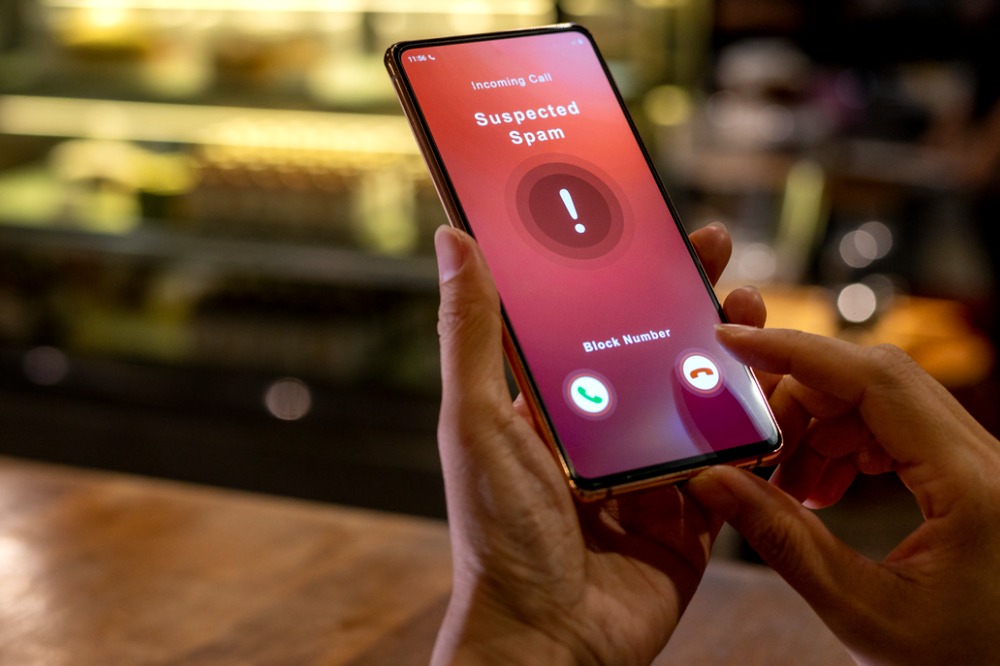American consumers facing insurance robocall scam deluge

American consumers facing insurance robocall scam deluge | Insurance Business America
Insurance News
American consumers facing insurance robocall scam deluge
Spam calls are putting people off picking up the phone
Insurance News
By
Jen Frost
Americans are facing a deluge of insurance scam calls, and seven in 10 (71%) believe there has been an increase in robocall scams claiming to be from an insurance provider over the past 12 months, according to research by Transaction Network Services (TNS).
Meanwhile, 69% of individuals surveyed as part of research carried out for TNS by Kantar were “concerned” about robocall scams claiming to be from an insurance provider.
Across industries, there have been 77 billion unwanted robocalls over the past year, according to TNS, and this has put some consumers off picking up the phone. Sixty eight per cent (68%) of the 1,079 adults surveyed would now refuse to answer the phone to unknown numbers.
Scam robocalls common in health and auto insurance
Within insurance, health insurance scam and spam calls could be particularly prevalent, according to TNS VP, product management enterprise & consumer services Jim Tyrrell (pictured below). These tend to boom around open enrolment time, which kicks off in October. Sixty two per cent (62%) of those surveyed said they had received at least one health insurance robocall scam call around open enrolment time.
“[Scammers] will call and will say ‘let me help you with your personal information’”, Tyrrell said. From there, they can use that information to “defraud” unwitting consumers.

Auto insurance also has its fair share of spammers and scammers.
“One that’s fairly common is auto warranty scams,” Tyrrell said. “There’s also ones we’ve seen [where bad actors] pretend to be able to offer auto insurance in your state when they clearly aren’t able to – that was pretty prevalent last year.”
Seattle-based Hiya Protect recently warned of a surge in vehicle accident scam calls, including to its ‘honeypot’ number, used to capture illegal calls made without consent.
Robocall scammers prey on vulnerable consumers – and generative AI could add pressure
During the COVID-19 pandemic, many scams were geared to prey on people’s isolation and health fears, according to Tyrrell, with more “sheltered” older people targeted.
“The bad actors always are really good about trying to create scams, they are con men, and what they do is they try to find topical themes that resonate,” Tyrrell said.
Vulnerable people may be prime targets for scammers and spammers, but Tyrrell said he did not believe that they were specifically targeting their numbers yet. However, their attempts could soon become “more sophisticated and targeted”.
“Bad actors will modify how they try to get around and work on the edges of what’s legal,” Tyrrell said.
A business can’t send you #robocalls if they got your contact information from someone else. Third party robocall lead generation is illegal under the Telemarketing Sales Rule. Learn more about complying with the TSR: https://t.co/BHdsL94vzB. #StopScamCalls
— FTC (@FTC) August 14, 2023
Generative AI and dark web data access are two avenues that could help scammers build their capabilities and try new tacks, according to Tyrrell, but the technology brings positives with the negatives.
“On the good side, we continue to use AI and machine learning to help combat and figure out what the bad actors are up to from a robocall perspective, so there’s good and there’s bad in this,” Tyrrell said.
“With the wildfires in Hawaii [auto diallers can be used] to call multiple people at the same time,” Tyrrell said. “Unfortunately, that same technology can be used on the bad side for scams – similarly, AI will be used for good, but unfortunately bad actors will figure out a way to try to make money off of it as well.”
American consumers may be wary of taking calls, but 53% of those surveyed preferred to engage with their insurer or broker via a phone call than any other method, TNS found. Meanwhile, 58% would be more willing to share personal information with an insurance caller if the incoming call was branded to display the company’s name and logo.
Got a view on insurance robocall spam and scams? Leave a comment below.
Related Stories
Keep up with the latest news and events
Join our mailing list, it’s free!






